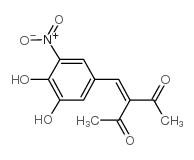Investigation of gastroprotective compounds at subcellular level in isolated gastric mucosal cells.
L Nagy, R E Morales, M Beinborn, P Vattay, S Szabo
文献索引:Am. J. Physiol. Gastrointest. Liver Physiol. 279(6) , G1201-8, (2000)
全文:HTML全文
摘要
We tested the hypothesis that recognized gastroprotective agents exert direct protection against ethanol-induced injury in isolated rat gastric mucosal cells in vitro. If protection exists, we also wanted to identify subcellular targets in the reversible and/or irreversible stages of cell injury. Ethanol-induced cell injury was quantified by measuring plasma membrane leakage (trypan blue exclusion and lactate dehydrogenase release), mitochondrial integrity (succinic dehydrogenase), and nuclear damage (ethidium bromide-DNA fluorescence). Initial cell viability and responsiveness were estimated by the effects of carbachol, carbachol + atropine, or 16,16-dimethyl-PGE(2) on chief cell pepsinogen secretion. Enriched parietal cells were stimulated by histamine, carbachol, or histamine + IBMX. Preincubation of cells with PG, sucrose octasulfate, or the sulfhydryl compounds N-acetylcysteine, taurine, or cysteamine increased cell resistance
相关化合物
| 结构式 | 名称/CAS号 | 分子式 | 全部文献 |
|---|---|---|---|
 |
OR-462
CAS:116313-94-1 |
C12H11NO6 |
|
D1-like dopamine receptor activation and natriuresis by nitr...
2001-05-01 [Kidney Int. 59(5) , 1683-94, (2001)] |
|
Extending levodopa action: COMT inhibition.
1998-06-01 [Neurology 50(6 Suppl 6) , S27-32; discussion S44-8, (1998)] |
|
The Helicobacter felis mouse model in assessing anti-Helicob...
1996-04-01 [Scand. J. Gastroenterol. 31(4) , 334-8, (1996)] |
|
Nitecapone and selegiline as effective adjuncts to L-DOPA in...
2002-01-01 [Methods Find. Exp. Clin. Pharmacol. 24(1) , 23-9, (2002)] |
|
Dopamine is metabolised by different enzymes along the rat n...
2005-06-01 [Pflugers Arch. 450(3) , 185-91, (2005)] |